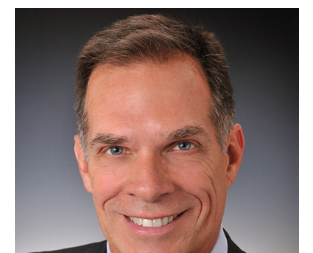The European Commission is seeking applicants for membership of a high-level expert group (HLEG) to develop a strategy for scaling up sustainable finance in emerging economies.
Developing such a strategy was one of the action points in the Commission’s July 2021 renewed sustainable strategy document. It is described as part of the EU’s efforts to address inequalities and foster a green recovery by mobilising private capital for the Sustainable Development Goals (SDGs).
Members of the HLEG will be asked to examine how to support sustainability-related financial instruments and products, how to facilitate global and local investments in SDGs-aligned projects, and how to build a conducive environment to accelerate private finance flows for sustainable development in low and middle income countries.
The group will work over a nine-month period this year, with the Commission’s resultant strategy scheduled for adoption in 2023.
The deadline for applications is 27 April.
The Commission said the group should be geographically representative of low- and middle-income countries and EU countries and should bring together sectoral areas and expertise such as EU cross-border investors and local investors, and organisations providing data analyses or methodologies that facilitate sustainable finance.
UK pension investors back ‘Living Wage’ resolution first
Brunel Pension Partnership, Islington Pension Fund and defined contribution master trust NEST are among 10 institutional investors that have co-filed a shareholder resolution calling on UK supermarket Sainsbury’s to accredit as a Living Wage employer by July 2023.
It is said to be the first shareholder resolution calling for a listed firm to become a Living Wage employer.
Actiam, HSBC Asset Management, Fidelity International, Friends Provident Foundation, Legal & General Investment Management, and 108 individual shareholders are also involved in the campaign, which is being co-ordinated by responsible investment charity ShareAction.
IPE understands the resolution is not intended to single Sainsbury’s out as a bad apple but rather to catalyse change right across the sector. The investors in the coalition are writing to every UK supermarket this week to put them on notice that they expect living wage accreditation, and further resolutions have not been ruled out.
The real Living Wage is calculated according to the cost of living, which ShareAction said works out to £11.05 in London and £9.90 for the rest of the UK. Living Wage-accredited employers commit to paying at least these rates to both direct and subcontracted staff.
Sainsbury’s currently meets the real Living Wage rates for its directly employed staff in inner London and outside the capital, but does not meet the real living wage rate in outer London. It also has no commitment to pay these rates to its third party contractors and no commitment to continue raising pay rates for any of these groups in line with the cost of living.
“Food prices and energy bills are increasingly unsustainable for many of the lowest-paid employees, but companies like Sainsbury’s have the wherewithal to appropriately compensate a large number of key workers – providing an example for others to follow,” said Laura Chappell, chief executive officer at local authority pension pool Brunel.
“As for the financial sense of making the change, it is telling that investors representing £2trn in assets are requesting this change.”
Half of the FTSE 100 are now among over 9,500 accredited Living Wage employers, a group that also includes retail giant IKEA, but no supermarket has yet accredited.
Scottish Widows decides tobacco, carbon exclusion adds
Scottish Widows, a major UK pensions provider, has announced an expansion of its exclusions policy that spells another £1.5bn worth of divestments.
The policy now includes a commitment to divest from tobacco firms, with the provider also tightening its stance on carbon-intensive industries to lower the allowed threshold for extraction of thermal coal and tar sands rom 10% of revenue to 5%.
The policy applies to active funds and shareholder funds. Scottish Widows also worked with FTSE Russell to construct a range of new bespoke screened indices for its passive funds, which will be managed by BlackRock.
The new indices will cover more than £20bn worth of assets under management.
Announcing its new policy, Scottish Widows said tobacco holdings posed an unrewarded investment risk. It said it already excluded companies violating UN Global Compact principles and that tobacco companies weren’t even allowed to sign up to them given their product’s huge detrimental effect.
On the carbon-related policy tightening, Maria Nazarova-Doyle, head of pension investments and responsible investments said: “We stand by our belief that carbon-intensive sources of energy such as thermal coal and tar sands will ultimately be replaced by greener renewable sources such as wind or solar. As such, exiting these highly damaging areas and redirecting capital to more climate-aware investments makes perfect investment sense.”
The provider also said it had tightened its stance on thermal coal and tar sand “to reflect the progress made by leaders in the sector who have been dramatically reducing their reliance on these highly pollutive fuels”.
The new divestments build on £1.4bn-worth of exclusions previously applied to Scottish Widows’ investments, which the provider said made for “one of the most extensive screening policies yet implemented by a UK pensions provider”.
New fintech platform to help investors avoid greenwashing
UK-based MainStreet Partners, an ESG advisory and portfolio analytics firm, has launched ‘ESGeverything.com’, a fintech platform intended to help asset owners and others navigate the world of ESG ratings, standards and labelling.
According to MainStreet, it has been designed to help users understand and manage the ESG risks in their entire diversified portfolios, and to avoid greenwashing.
Users will get access to an evolving database of ESG ratings created by MainStreet’s proprietary models, with ratings based on a scale of 1 to 5. Three and over represents an ‘ESG certified’ portfolio.









